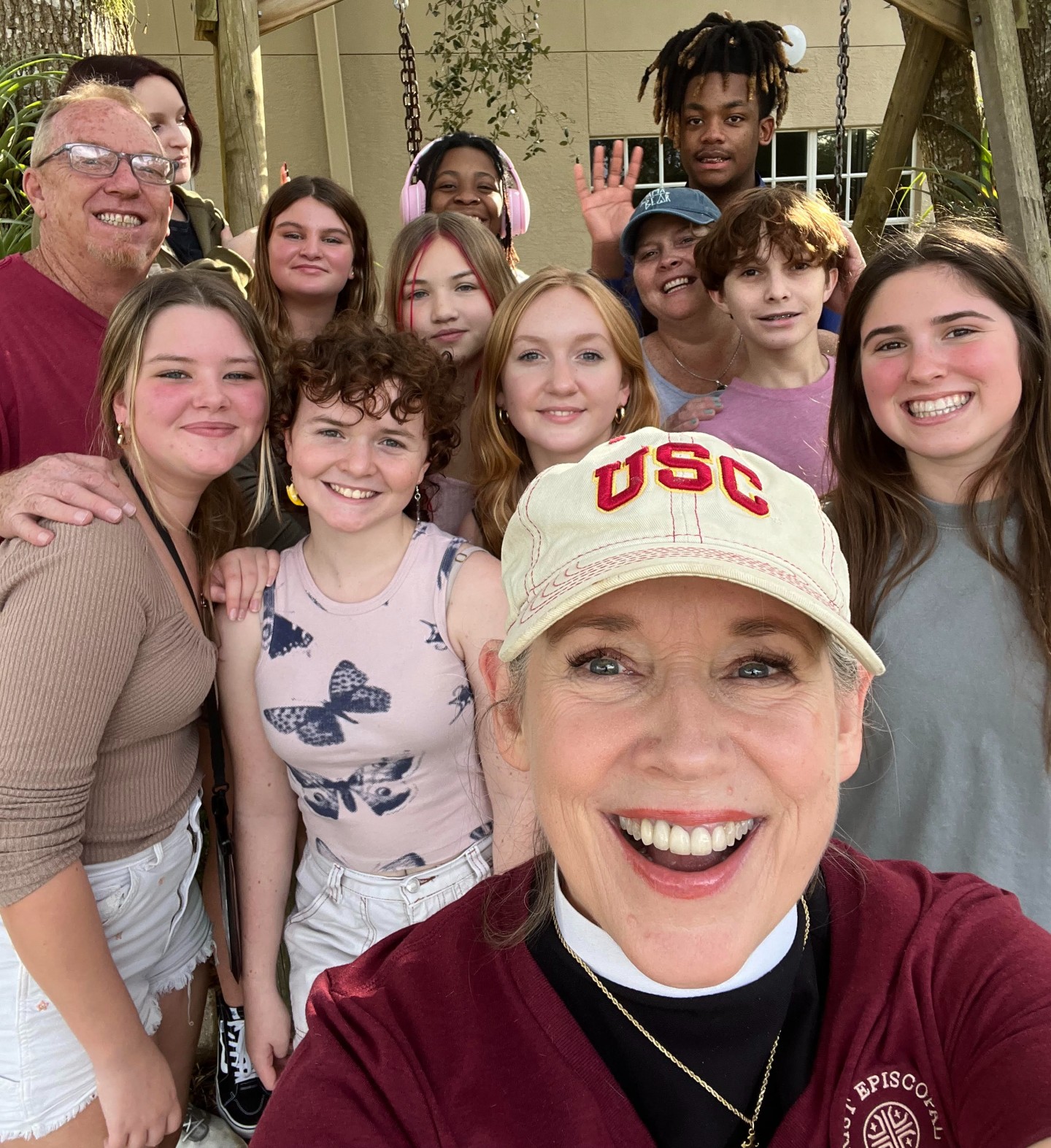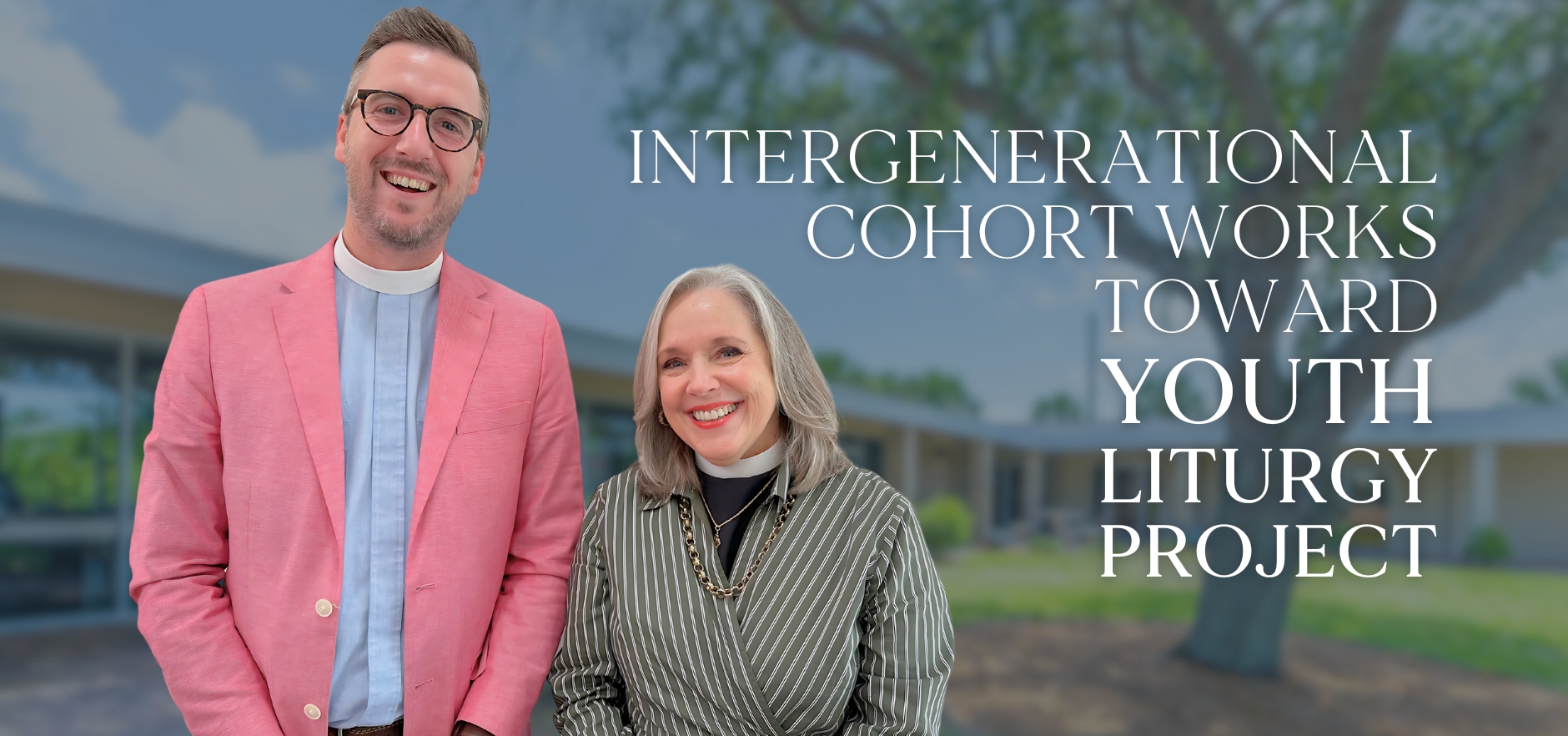The St. David’s Institute, Cocoa Beach, and Christ Episcopal Church, Suntree-Viera, have launched an intergenerational cohort to create a liturgy project written by teenagers, for teenagers. The Rev. Cynthia Brust, rector of Christ Episcopal, and the Very Rev. Dr. Porter Taylor, rector of St. David’s by-the-Sea, Cocoa Beach, co-leaders of the cohort, believe teenagers are not the future of the church. Rather, they are now gifted members of the church who should be empowered to lead.
Brust and Taylor’s goal for the project is twofold. First, the act of participating in the cohort is formative for the youth and the leaders involved.
“We are both deeply convicted that the spiritual formation of youth needs to be a top priority in our churches, deanery, diocese, The Episcopal Church and beyond,” Brust said. “This cohort is, of course, seeking to compile a lasting resource for teenagers, but the actual work of being together and collaborating as a group is intended to help bolster faith in each of us.”
Second, the resource the students will create is intended to help form faith more broadly. “Our collaboration has the potential to offer a resource not just to the youth in our parishes, but to The Episcopal Church and beyond,” Taylor said.

Mr. Brooke Barlow, Christ Episcopal youth director (L) with youth from Christ Episcopal and Mother Cynthia Brust (C). Barlow, Brust and many of the youth are part of the worship cohort. | Photo Credit: The Rev. Cynthia Brust
During their initial meeting in February, Brust and Taylor met with several teenagers from both churches to discuss project ideas. The youth expressed that while they each value liturgical worship, the Book of Common Prayer lacks prayers that express the unique stage of life and spiritual needs of teenagers. They also explained the need of a middle road for busy students: something longer than the prayer book’s “Daily Devotions for Individuals and Families” but shorter than the “Daily Office.”
A project was born.
Over the next several months, the cohort will meet regularly to create a daily liturgy with prayers for multiple situations teenagers find themselves in. Ideas included prayers after the loss of a grandparent, prayers before exams, prayers for college entrance decisions, prayers for loneliness and more. While the teens expressed a level of nervousness about actually writing the prayers, they all deeply value the power of prayer.
“The resource will be printed, bound and available for purchase and distribution – and hopefully publication – when the project is complete,” Taylor said. “There is nothing like this on the market right now that is designed by and for teenagers in the liturgical space.”
“Fr. Porter and I also hope to have a graphic or artistic element included, as worship and the arts are so integrally related,” Brust said.
Both priests have been touched by the depth of faith demonstrated by the youth involved.
“I think we so often underestimate what teenagers have to offer in our churches, and it leads to generational divides,” Brust said. “I was deeply moved when, during our last gathering, one of the teenagers said that she has never been asked to pray for anyone before. Adults who invested in my life helped form and shape my faith, and we must use every opportunity to do the same.”
“Statistics show that students are more likely to keep their faith after high school if the student has been invested in by adults outside of their home in matters of faith,” Taylor said. “In this project alone, we have five generations represented: baby boomers, Gen X, millennials, Gen Z and Generation Alpha.”
There are currently eight students and three adult leaders involved in the project.
“We are responding to the ache of many of our parishioners who have had children and grandchildren leave the church,” Taylor said. “We are committed to finding innovative ways to enhance what the church offers her youth and to form a generation of lasting faith.”
Brust agrees. “It may well be the church’s greatest calling at this time.”

